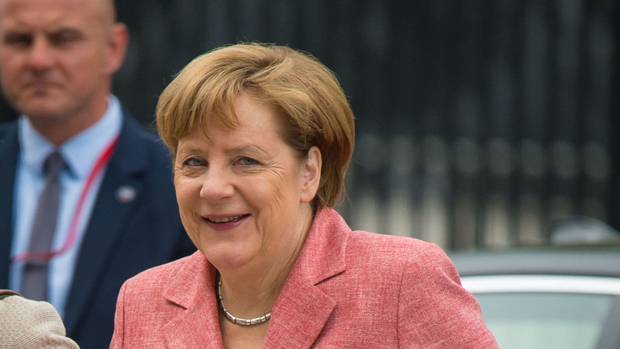-
Tips for becoming a good boxer - November 6, 2020
-
7 expert tips for making your hens night a memorable one - November 6, 2020
-
5 reasons to host your Christmas party on a cruise boat - November 6, 2020
-
What to do when you’re charged with a crime - November 6, 2020
-
Should you get one or multiple dogs? Here’s all you need to know - November 3, 2020
-
A Guide: How to Build Your Very Own Magic Mirror - February 14, 2019
-
Our Top Inspirational Baseball Stars - November 24, 2018
-
Five Tech Tools That Will Help You Turn Your Blog into a Business - November 24, 2018
-
How to Indulge on Vacation without Expanding Your Waist - November 9, 2018
-
5 Strategies for Businesses to Appeal to Today’s Increasingly Mobile-Crazed Customers - November 9, 2018
Anti-Immigrant Party Defeated The German Chancellor In Her Home State
“Everyone now needs to think about how we can win back trust – most of all, of course, myself”, Merkel said, speaking on the sidelines of a G20 summit in China a day after the election drubbing in her home state of Mecklenburg-Western Pomerania.
Advertisement
Ms Merkel’s refugee policies were a prominent issue in the campaign for the election, which came a year to the day after she chose to let in migrants who were waiting in Hungary to travel to Germany – setting off the peak of last year’s influx.
Merkel, chancellor for almost 11 years, on Monday took responsibility for the state election result but stood by her migrant policy.
Although the number of migrants arriving in Germany has sharply fallen because of border controls in the Balkans and an European Union deal with Turkey, domestic critics still say the German government is moving too slowly in processing applications and deporting migrants who do not qualify for political asylum.
The SPD and CDU retained enough seats to be able to continue their grand coalition in Mecklenburg-Vorpommern, with the AfD as the second-largest bloc in the 71-seat state assembly.
The Social Democrats (SPD), junior partner in Merkel’s right-left coalition, have seized on speculation about whether she may decide not to run in next year’s election, although there are no obvious rival conservative candidates. They put support for Merkels Christian Democrats between 19 and 20 percent, their worst result yet in the state.
“This was more than a small state election, it was a vote on Merkel”, said news site Spiegel Online, pointing at the “protest storm” in “Merkel’s living room”. As observers and CDU members admitted after elections, the CDU’s “bitter result” was directly linked to voters’ dissatisfaction with Merkel’s soft line on refugees.
Merkel has yet to say whether she will seek a fourth term next year, as is widely expected.
“This is a slap in the face for Merkel – not only in Berlin but also in her home state”, said Frauke Petry, co-leader of the AfD.
Facing another election in two weeks in the city-state of Berlin, and three more state ballots next year before national elections in the fall, Merkel insisted that voters would eventually come to support her refugee policy. “The issue of integration will play a major role, as will the repatriation of refugees without a permit of stay”, Merkel said. But, the northeastern Mecklenburg-Western Pomerania was home to merely 25,000 asylum seekers previous year.
The nationalist, anti-migrant Alternative for Germany finished in second place, with 21 percent of the vote, behind the center-left Social Democrats, with nearly 31 percent. It already has deputies in eight other state legislatures and is likely to enter the national parliament after next year’s general election.
Advertisement
A recent poll showed her approval rating fell from 67 percent to a five-year low of 45 percent.





























